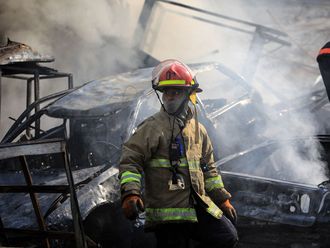London: The New York Times did not report that a young Palestinian journalist had been arrested in Israel because it obeyed a gagging order issued by an Israeli court.
The paper’s delayed publication of the story about the detention of Majid Kayyal was revealed by its public editor, Margaret Sullivan.
She quoted the New York Times’s Occupied Jerusalem bureau chief, Jodi Rudoren, as explaining that the acceptance of gag orders is analogous to abiding by traffic rules or any other laws of the land.
Sullivan also consulted in-house lawyer David McCraw, who evidently described the situation as “somewhat murky”. She quoted him as saying: “The general understanding among legal counsel in other countries is that local law would apply to foreign media.”
But is that really so? Plenty of newspapers across the world publish material about Israel that is subject to internal censorship.
Sullivan was clearly unconvinced by the argument advanced by her paper’s bureau chief, saying that she found it “troubling” that the New York Times should have to wait for the Israeli government’s approval before deciding to run a story.
A “little transparency would go a long way”, she said, and the story should have informed readers what had happened. Perhaps Jodi Rudoren, who became bureau chief in May 2012, was being overly cautious.
It is also the case that some Israeli publications have not obeyed gag orders, such as Haaretz, as did an Australian outlet. And it was Haaretz that petitioned against the gag order on Kayyal’s arrest.
Kayyal, a 23-year-old Arab-Israeli freelance journalist, was arrested on 12 April after visiting Lebanon to attend a conference for a Beirut-based newspaper he writes for.
He was released to house arrest, banned from using the internet for 20 days and subject to a travel ban.
Israel’s security agency said there was suspicion that a Lebanese terrorist organisation may have tried to recruit Kayyal. They pointed out that he had participated in a Gaza protest flotilla in 2011.
In an editorial on Kayyal’s arrest, Haaretz argued that the measures taken by the security service were “extreme” and criticised the “sweeping gag order” that was imposed.
It said: “Israelis who visit an Arab country in fulfilment of their journalistic duties, or to meet with relatives, or for any other innocent reason, are not criminals. They should not be considered as such as long as they do not compromise state security.”












